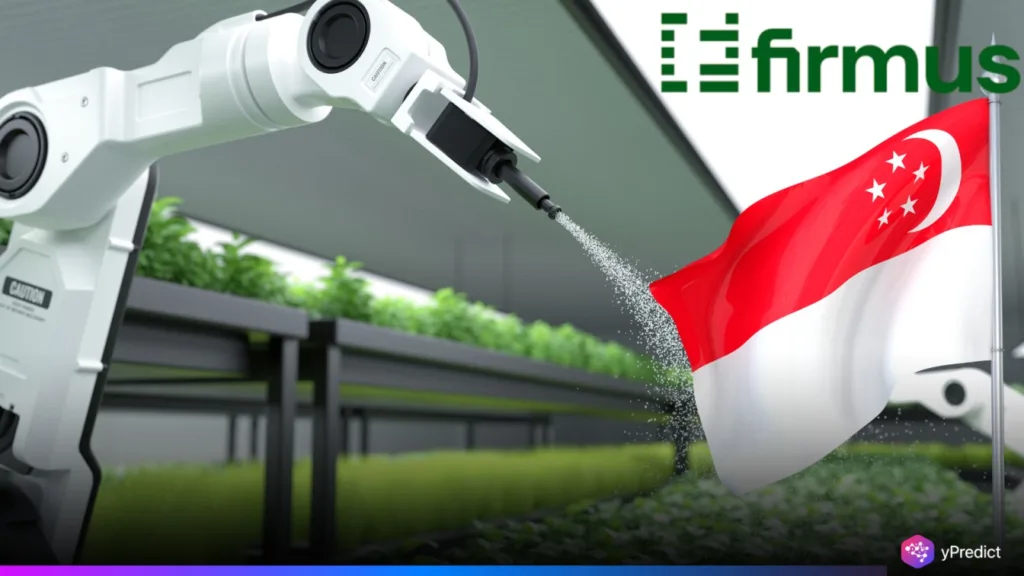
Firmus Technologies is partnering with the Singaporean Maritime and Port Authority through a Memorandum of Understanding to develop AI infrastructure on a seawater-cooled basis at waterfront infrastructures. Together with the industry leaders, the collaboration aims at sustainable, modular, liquid-cooled systems that will be able to serve the maritime, industrial, and public areas. The project aims to reduce energy and land usage while delivering sovereign-scale compute. Co-CEO Tim Rosenfield emphasized Firmus’s commitment to delivering high-efficiency AI systems with minimal environmental impact. This partnership positions Singapore to advance its AI and sustainability ambitions. While offering a blueprint for integrating compute infrastructure into coastal urban landscapes without compromising ecological or spatial constraints.
Tasmania’s AI Factory Zone: A National AI Ambition
Firmus is simultaneously advancing one of the most ambitious AI infrastructure projects in the southern hemisphere through its partnership with the Tasmanian government. Announced earlier this month, the initiative centers on the establishment of a 90 MW AI Factory Zone in northern Tasmania. With Firmus’ Project Southgate at its core. Stage 1a will deliver 44 MW, and developers expect it to cost AU$2.1 billion (US$1.37 billion), powered entirely by renewable energy. Stage 1b will double that capacity, with a potential second phase bringing the total to 390 MW.
Tasmanian Premier Jeremy Rockliff called the project a defining moment for the state’s future. Stating that Tasmania’s clean energy would be converted into opportunity, innovation, and global leadership in AI. Project Southgate is designed to serve as the foundation of Australia’s AI infrastructure. Transforming Tasmania into a regional AI hub for the Asia-Pacific.
Firmus co-CEO Oliver Curtis described the facilities as “purpose-built to power, train, and infer artificial intelligences.” Adding that the combination of Tasmania’s clean energy and Firmus’ AI Factory platform makes it the most sustainable and cost-effective AI buildout in the world. The initiative aims to support local energy grids while fostering next-generation digital infrastructure.
A Shift in Identity: From HPC to AI Factory Builder
Founded in 2019 by Oliver Curtis, Tim Rosenfield, and Jonathan Levee, Firmus began as a high-performance computing startup specializing in immersion-cooled infrastructure. It established its original location in Tasmania as an R&D and data center based on high-efficiency cooling. With time, the corporation changed its identity and moved to being an AI infrastructure provider. In the present time, Firmus characterizes itself as a pure artificial intelligence factory builder whose long-term mission is to energize the future of artificial intelligence via modular, scalable, and environmentally friendly facilities.
Firmus’ strategy includes localized compute zones powered by renewable energy and cooled through advanced liquid systems. Its AI cloud platform, SMC, currently operates out of STT GDC data centers in Singapore and provides access to cutting-edge Nvidia H100 GPUs. The company is expanding rapidly, with AI factories planned in India and Thailand. And its inclusion in Nvidia’s Lepton marketplace highlights its growing prominence in the global AI supply chain.
Earlier this month, Firmus secured AU$280 million (US$180 million) in pre-IPO funding as it prepares to list on the Australian Stock Exchange. This funding will support the next phase of growth, including further AI factory construction and platform expansion across Asia-Pacific. The goal is clear: build sovereign, sustainable compute infrastructure for a rapidly AI-driven world.
The Global Push for Sustainable AI Cooling
Firmus’s approach is part of a broader trend toward sustainable AI infrastructure, particularly cooling systems that minimize energy use. Seawater and river-based cooling, once considered niche, are now being explored at scale. Google has used seawater cooling in Finland for years, while Portugal’s Start Campus and Digital Realty have announced similar plans using ocean and river systems. Firmus’ collaboration with Singapore’s port authority brings this innovation to Southeast Asia. By aligning AI infrastructure with climate goals and regional development. Firmus and others are pioneering what may become a global standard of AI at scale, powered and cooled with minimal environmental tradeoffs.






